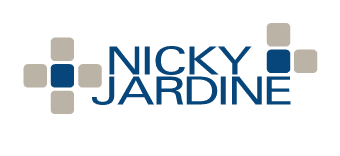Medical Practice Owners & Effect of the Shared Debt Recovery Scheme
Acknowledgement: This article was originally published here at Health Law Solutions.
The Medicare Shared Debt Recovery Scheme (Scheme) commenced on 1 July 2019.
Under the Scheme both the practitioner who provides a service using their Medicare provider number (Provider) and another party, which is usually their employer/practice owner (Practice), can be responsible for repaying debts resulting from incorrect claiming of Medicare benefits.
This is called a ‘Shared Debt Determination’. Default percentages for the Provider (65%) and Practice (35%) apply unless the circumstances support a different share of the debt (eg. The Practice may have to pay a higher portion of the debt if it has significant control over the billing process).
How does it work?
The Provider has primary responsibility for correct benefit claims as only they can confirm that the service has been delivered according to the Medicare Benefits Schedule.
However, as billing is often performed by admin staff employed by the Practice, the Scheme recognises that Practices submitting claims to Medicare also have an obligation to ensure that they are accurate.
When does the Scheme apply?
The following three mandatory criteria must apply for a Shared Debt Determination to be made:
- There is a recoverable amount (debt) resulting from a false or misleading statement;
- There is a relationship between the Provider and Practice; and
- The Practice could have:
- controlled/influenced the statement;
- obtained a financial benefit from it; and/or
- ‘other factors’ make it reasonable for a Shared Debt Determination to be made.
The Scheme will not apply to:
- routine adjustments where the Provider alerts the Department to an error;
- inappropriate practice reviewed by the Professional Services Review;
- false or misleading statements made by someone other than the Provider; or
- fraudulent Medicare claims made by one party without the knowledge of the other.
When could a Shared Debt Determination be made?
The Scheme applies when the Department of Health conducts Medicare compliance audits.
These audits do not assess clinical appropriateness but, instead, assess whether all elements of an MBS item have been delivered to justify the claim.
If the Provider being audited informs the Department that they are employed by or work through a Practice and requests consideration of a shared debt, the auditor will notify the Practice.
Before making a shared debt determination the Department must give written notice, including the amount, the proportions of the Provider and Practice and the reasons for the proportions. Each party may make submissions on whether the debt should be shared and, if so, the proportions.
The Department will consider all information received and then make its determination.
What share of the debt is paid by the Provider and Practice?
Default percentages for the Provider (65%) and Practice (35%) are prescribed by legislation. But the Department must consider whether it would be fair to set a different percentage, considering:
- any arrangements apportioning benefits between the Provider and Practice; and
- the influence or control the Practice had over the claim being audited.
Further information is available through the Department of Health here with their shared debt recovery scheme fact sheet.
DISCLAIMER: THE INFORMATION USED IN THIS ARTICLE IS FOR GENERAL INFORMATION ONLY AND IS NOT LEGAL ADVICE. IF, AFTER READING THIS ARTICLE, YOU NEED CLARIFICATION WE RECOMMEND YOU SEEK ADVICE FROM YOUR PROFESSIONAL ASSOCIATION, INSURER AND/OR INDEPENDENT LEGAL ADVISER.

